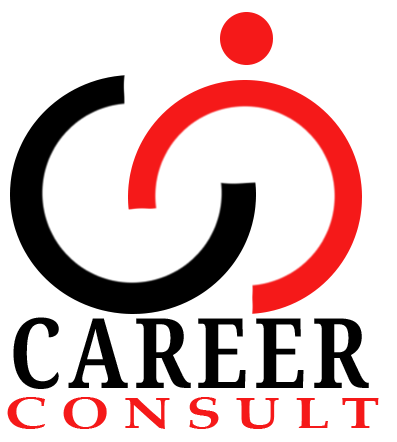How to Successfully Negotiate Your Salary in the Kenyan Job Market
Salary negotiation is a crucial step in securing a job offer that matches your skills, experience, and financial needs. In the Kenyan job market, where competition is fierce, knowing how to effectively negotiate your salary can make a significant difference in achieving your career goals. Successful salary negotiation requires preparation, self-awareness, and an understanding of the market trends. This post will guide you through the process of negotiating your salary in Kenya while highlighting the importance of Professional CV writing, LinkedIn Optimization, and Cover letter writing as key tools in your job search strategy.
1. Understand the Kenyan Job Market
Before stepping into salary negotiations, it’s essential to have a clear understanding of the Kenyan job market. Salaries in Kenya vary significantly across industries, job roles, and levels of experience. Understanding the average salary for your specific position will give you the confidence you need to negotiate. Websites like Kenya Salary, Glassdoor, and MyJobsKenya can provide valuable insights into salary ranges for various positions in different sectors.
While some industries, like tech and finance, may offer higher salaries, others, like education or healthcare, might have more modest compensation packages. Understanding these market trends and the factors that influence salaries can help you determine a fair compensation package.
2. Prepare Your Professional CV and Cover Letter
Your Professional CV writing is one of the first steps in positioning yourself as a strong candidate. A well-crafted CV not only showcases your skills and qualifications but also highlights your achievements and the value you can bring to an organization. When you apply for a job, your CV is often the first impression you make on a potential employer. Therefore, a professionally written CV can significantly impact your ability to secure a well-paying job.
Similarly, a tailored Cover letter writing should accompany your CV to complement your application. Your cover letter is your chance to explain why you’re the right fit for the role and how your experience aligns with the company’s needs. A well-written cover letter also demonstrates your communication skills and professionalism, both of which are important when negotiating salary.
When you’re preparing for salary negotiations, ensure that your CV and cover letter are up to date and tailored to reflect your most recent accomplishments. A strong Professional CV writing service can help you present your experience in the best possible light, increasing your chances of landing interviews and securing offers that align with your salary expectations.
If you need help creating a professional CV or drafting a compelling cover letter, consider working with experts who specialize in Professional CV writing and Cover letter writing. These services can improve your chances of standing out in a competitive job market and make salary negotiations easier. You can learn more about Professional CV writing and Cover letter writing services here:
- Professional CV writing: Professional CV writing
- Cover letter writing: Cover letter writing
3. Optimize Your LinkedIn Profile
In today’s job market, your LinkedIn profile is just as important as your CV. It is often the first place potential employers go to learn more about your professional background, and it serves as an additional platform to showcase your expertise. LinkedIn Optimization is critical for increasing your visibility and credibility in the professional world.
A well-optimized LinkedIn profile can significantly improve your chances of landing a job with a higher salary. Ensure that your profile is complete and up-to-date, with a professional headline, detailed job experience, and relevant skills. Additionally, your LinkedIn profile should feature recommendations and endorsements from colleagues and supervisors, which can help establish your credibility and increase your negotiating power.
LinkedIn Optimization is also essential for job seekers in Kenya, where many recruiters rely on LinkedIn to find top talent. By optimizing your LinkedIn profile, you increase your chances of being headhunted for higher-paying opportunities. If you’re unsure how to optimize your profile, consider utilizing a LinkedIn Optimization service, which can help tailor your profile for success.
For those looking to enhance their LinkedIn profiles, learn more about LinkedIn Optimization here:
- LinkedIn Optimization: LinkedIn Optimization
4. Research and Set Your Salary Expectations
Once you’ve optimized your CV, cover letter, and LinkedIn profile, the next step is to research salary ranges for your position. In Kenya, many employers may ask for your salary expectations early in the interview process. It’s important to set realistic yet ambitious expectations. Research the average salary for your role in your specific industry and geographical location.
Consider factors such as your level of experience, education, and skills when determining your expected salary. If you’re applying for a managerial position, for example, your salary expectations should reflect the added responsibilities and leadership experience you bring to the table.
At this stage, having a Professional CV that highlights your experience and skills is crucial. Your CV should effectively communicate your value proposition, making it easier to justify your salary expectations during negotiations. Similarly, a well-written Cover letter should help support your case, providing a narrative that highlights your achievements and qualifications.
5. Practice Negotiation Skills
Negotiating salary is a skill that can be honed with practice. Before your interview, take time to practice your negotiation techniques. Role-play scenarios with a trusted friend or mentor, and anticipate potential objections from the employer. Understand the company’s salary range and be prepared to discuss why you believe your skills and experience justify a higher salary.
When negotiating, focus on the value you bring to the company rather than your personal financial needs. Highlight your unique skills and achievements that directly contribute to the organization’s success. Be confident, professional, and ready to compromise, but always keep your minimum acceptable salary in mind.
Remember that salary negotiation is a two-way conversation. While it’s essential to advocate for yourself, it’s equally important to listen to the employer’s concerns and be open to negotiation. Demonstrating flexibility can help build a strong rapport, which may lead to a better overall offer.
6. Consider Benefits Beyond Salary
When negotiating your salary, it’s essential to look beyond the base pay and consider other benefits that may be included in the compensation package. These can include health insurance, retirement plans, bonuses, stock options, professional development opportunities, and flexible work arrangements.
In the Kenyan job market, many employers offer comprehensive benefits packages that can add significant value to your overall compensation. If the employer is unwilling to meet your salary expectations, consider negotiating for additional benefits that align with your personal and professional goals.
For example, if the employer cannot offer a higher salary, they may be willing to provide you with additional training or professional development opportunities. Professional CV writing and LinkedIn Optimization services can also be valuable benefits to request, as they can enhance your professional growth and increase your future earning potential.
7. Be Prepared to Walk Away
One of the most powerful tools in salary negotiation is the ability to walk away. If the employer is unwilling to meet your salary expectations or offer a compensation package that aligns with your needs, you must be prepared to decline the offer and continue your job search. Knowing when to walk away is an essential part of the negotiation process.
However, before walking away, ensure that you have a clear understanding of your minimum salary requirement. Be realistic about your financial needs and career goals. Sometimes, walking away can lead to better offers, but it can also signal to the employer that you are confident in your worth.
If you’re unsure about whether to accept or decline an offer, consider seeking advice from a mentor, career coach, or recruiter. Their experience and insights can help guide your decision-making process.
Conclusion
Negotiating your salary in the Kenyan job market requires careful preparation, research, and confidence. By taking the time to craft a Professional CV, optimize your LinkedIn profile, and write a compelling Cover letter, you can improve your chances of securing a salary that meets your expectations. Additionally, understanding the market trends, setting realistic salary goals, and honing your negotiation skills will empower you to navigate salary discussions with confidence.
If you need help crafting a professional CV, optimizing your LinkedIn profile, or writing an impactful cover letter, consider partnering with experts who can guide you through these critical steps. Whether you’re applying for a new role or negotiating a promotion, these services can make all the difference in securing the salary and benefits you deserve.
- Professional CV writing: Professional CV writing
- Cover letter writing: Cover letter writing
- LinkedIn Optimization: LinkedIn Optimization
By following these strategies and leveraging the right resources, you can confidently negotiate your salary and take the next step in advancing your career in Kenya’s competitive job market.




